The coronavirus pandemic is laying bare a growing competition between democratic and authoritarian governments. As the U.S. and Europe struggle to contain the virus at home, Russia and China are seizing the moment to enhance their international influence through information operations. Moscow and Beijing have long aimed to weaken the United States, blunt the appeal of democratic institutions, and sow divisions across the West. Their goals in this crisis are no different.
Information manipulation is just one of a suite of asymmetric tools Russia and China use to advance their political goals abroad. Other tactics include cyberattacks, economic coercion, malign financial activity, and societal subversion. The efforts by Moscow and Beijing should remind Western leaders of the ongoing geopolitical challenges percolating beyond the pandemic. As decisionmakers focus on shoring up their public health systems and economies, Russian and Chinese information campaigns are having a mutually reinforcing effect. Strong responses are needed from the United States, Europe, and democratic partners to ensure that authoritarian disinformation does not take root in fertile ground.
Sharing a playbook and a propaganda network
The information space has long served as a platform for authoritarian influence and interference. Moscow is often at the forefront of this challenge, using social media trolls, government officials, and state-friendly news outlets to spread conspiracy theories and obscure the distinction between fact and fiction.
China has benefitted from Russia’s brazen disinformation campaigns in the West while itself deploying more subtle information manipulation strategies. But that might be changing. Throughout the coronavirus pandemic, China has carried out a striking disinformation campaign of its own that borrows a few pages from the Kremlin’s playbook.
According to U.S. officials, Chinese agents are creating fake social media accounts akin to Russia-backed trolls to push out false messages that are designed to create chaos in the United States. In mid-March, U.S. intelligence agencies asserted that Chinese operatives helped to push false messages that the Trump administration was planning to lock down the country. The rumors became so widespread that the National Security Council had to issue an announcement stating they were fake.
Chinese diplomats and embassies are also using Twitter, which is banned within China, to promote and amplify conspiracy theories about the virus’s origin. Chinese diplomats and embassies now have more than 100 accounts on Twitter — a 300% increase since April of last year. Chinese Foreign Ministry spokesman Zhao Lijian promoted a conspiracy theory to his more than 300,000 Twitter followers that the U.S. military could have brought the coronavirus to China. The tweet, which linked to the blog of a known pro-Kremlin outfit, was promptly retweeted by more than a dozen Chinese diplomats and embassies. China’s state media then ran multiple stories to amplify the claim.
In promoting its conspiracy theories, China exploits Russia’s propaganda apparatus. RT and Sputnik, pro-Kremlin media outlets, are among the top five most-retweeted non-Chinese news outlets by China’s state-funded media. Several individuals associated with pro-Kremlin websites are among the top 100 accounts most frequently retweeted by Chinese state funded media and diplomats. Meanwhile, in recent weeks, RT and Sputnik have praised China’s assistance to European countries such as Serbia, while criticizing Europe’s lackluster responses to the virus. RT has also run stories calling European solidarity “a myth,” and the European Union’s initial assistance to Italy as “largely inadequate.”
Old wine, new bottles: Diminishing democracy’s appeal
While China’s overt assertiveness in this space might be new, its long-term goals are not. The Chinese Communist Party (CCP) has long employed disinformation, censorship, and monitoring tools to suppress criticism at home and press on democracy’s inherent weaknesses abroad. Its information operations are coupled with economic coercion and strategic investments to enhance Chinese ownership in key industries and sway other countries’ policies.
To deflect attention away from its early handling of the crisis and as a means to highlight democracy’s setbacks with its own people, Chinese state media and government officials appear eager to portray U.S. and European domestic responses to the pandemic as comparatively ineffective. In March and April, eight of Chinese state media’s 10 most-shared articles on Facebook featured content critical of the United States’ handling of the crisis or touting China’s assistance to Europe. (The other two pieces highlighted China’s assistance elsewhere around the world.)
The Chinese embassy in France has accused French politicians and medical workers of failing to assist their citizens. China’s embassy in Italy has promoted Beijing’s capability and willingness to provide support to Europeans in need. China’s mission to the European Union has highlighted America’s withdrawal from international institutions. This messaging is meant to champion China as a partner of first resort while painting European cohesion and American leadership as absent. It is a narrative that feeds into China’s long-term efforts to divide Europe and the transatlantic relationship in order to enhance its leverage over individual states and regional blocs. It implicitly gives China’s authoritarian model a boost.
Moving to a high-stakes strategy
In late 2018, U.S. Vice President Pence gave a speech at the Hudson Institute that outlined China’s influence and propaganda efforts in the United States. He argued that Beijing had “mobilized covert actors, front groups, and propaganda outlets to shift Americans’ perception of Chinese policy.” Pence also noted that according to intelligence community sources, the scale of Chinese operations significantly outweighed Russian moves in this domain. Despite the warning, Chinese influence campaigns have remained under the radar relative to Russian disinformation and meddling, garnering significantly less media attention and public scrutiny.
Today, China’s efforts are in the spotlight. Mainstream media outlets have run several stories on Chinese disinformation during the COVID-19 crisis. Citizens and government officials across Europe and the United States are now paying attention. French President Emmanuel Macron called on China to end its “Europe bashing.” The High Representative of the European Union for Foreign Affairs and Security Policy Josep Borrell pushed for greater awareness of a global “struggle for influence” through the “politics of generosity.” Why has China abandoned its low profile for a more high-stakes strategy that has already prompted blowback?
There are several potential reasons. One is that the international community has put China in a corner, and Beijing is lashing out with any tool at its disposal. The CCP knows it cannot shirk responsibility for the initial outbreak of the pandemic — causing perhaps the biggest economic crisis since the Great Depression — and it is now trying to deflect blame at all costs.
Another reason could be that Beijing has determined, despite a growing backlash over China’s initial mishandling of the crisis, that penalties for spreading disinformation are limited. The European Union’s purported decision to water down a report on Russian and Chinese pandemic-related disinformation after Beijing exerted pressure proves they could be right.
Finally, it is increasingly clear there are few rules in the information space. The U.S. president lies with impunity and suffers hardly any consequences. Populists across the United States and Europe churn out sensational stories based on scant facts. Russian disinformation and meddling, for all the attention it draws, has proven successful in exploiting political and societal divisions across the United States and Europe. A new online propaganda industry has made sophisticated deceptive campaigns available to anyone willing to pay for them, and grifters spread questionable claims for profit. As long as democracies fail to enact meaningful costs on the perpetrators of disinformation, Russia and China will continue to spin the game to their advantage.
The Brookings Institution is committed to quality, independence, and impact.
We are supported by a diverse array of funders. In line with our values and policies, each Brookings publication represents the sole views of its author(s).

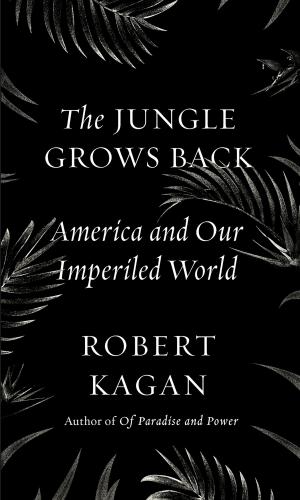
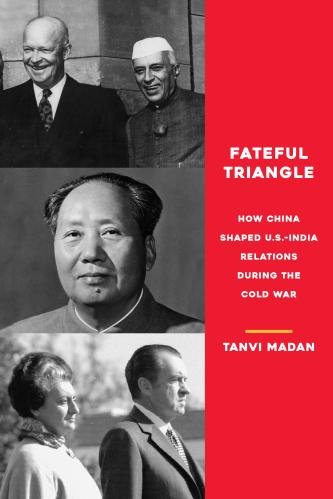
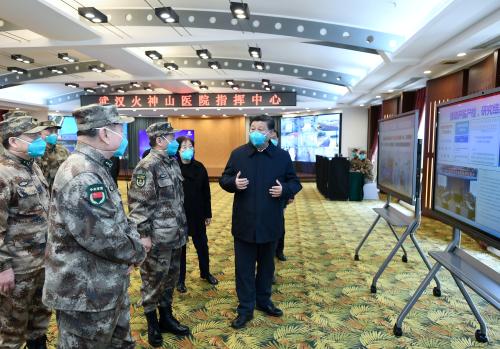
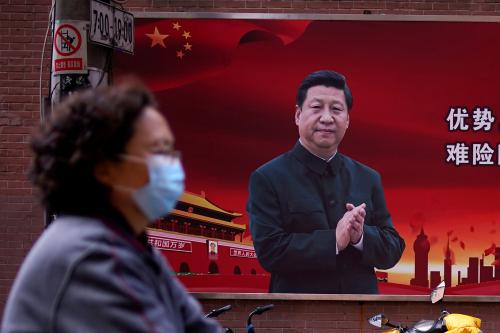




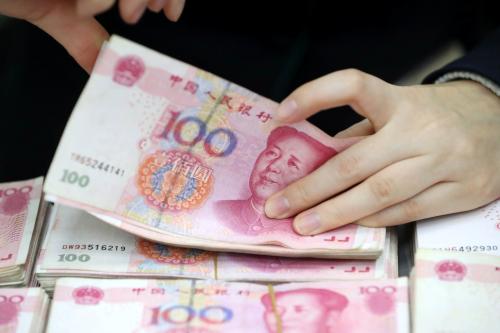
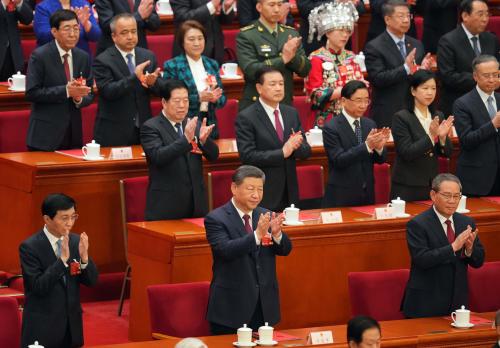
Commentary
The Kremlin’s disinformation playbook goes to Beijing
China has abandoned its low profile for a high-stakes strategy
May 19, 2020